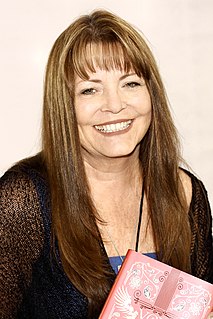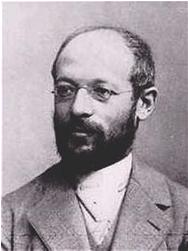A Quote by Harold Bloom
Reading well makes children more interesting both to themselves and others, a process in which they will develop a sense of being separate and distinct selves.
Related Quotes
Rhetoric is the counterpart of logic; since both are conversant with subjects of such a nature as it is the business of all to have a certain knowledge of, and which belong to no distinct science. Wherefore all men in some way participate of both; since all, to a certain extent, attempt, as well to sift, as to maintain an argument; as well to defend themselves, as to impeach.
Some who support [more] coercive strategies assume that children will run wild if they are not controlled. However, the children for whom this is true typically turn out to be those accustomed to being controlled— those who are not trusted, given explanations, encouraged to think for themselves, helped to develop and internalize good values, and so on. Control breeds the need for more control, which is used to justify the use of control.
People whose integrity has not been damaged in childhood, who were protected, respected, and treated with honesty by their parents, will be-both in their youth and in adulthood-intelligent, responsive, empathic, and highly sensitive. They will take pleasure in life and will not feel any need to kill or even hurt others or themselves. They will use their power to defend themselves, not to attack others. They will not be able to do otherwise than respect and protect those weaker than themselves, including their children, because this is what they have learned from their own experience.
In the planning and designing of new communities, housing projects, and urban renewal, the planners both private and public, need to give explicit consideration to the kind of world that is being created for the children who will be growing up in these settings. Particular attention should be given to the opportunities which the environment presents or precludes for involvement of children both older and younger than themselves.
Business in a certain sort of men is a mark of understanding, and they are honored for it. Their souls seek repose in agitation, as children do by being rocked in a cradle. They may pronounce themselves as serviceable to their friends as troublesome to themselves. No one distributes his money to others, but every one therein distributes his time and his life. There is nothing of which we are so prodigal as of those two things, of which to be thrifty would be both commendable and useful.
Art and poetry cannot do without one another. Yet the two words are far from being synonymous. By Art I mean the creative or producing, work-making activity of the human mind. By Poetry I mean, not the particular art which consists in writing verses, but a process both more general and more primary: that intercommunication between the inner being of things and the inner being of the human Self which is a kind of divination (as was realized in ancient times; the Latin vates was both a poet and a diviner). Poetry, in this sense, is the secret life of each and all of the arts.
If you *stop* putting off homemaking until your hope of marriage develops into a reality, and *start* to develop an interesting home right now, it seems to me two things will happen: first, you will develop into the person you could be as you surround yourself with things that express your own tastes and ideas; and second, as you relax and become interested in areas of creativity, you will develop into a more interesting person to be with.



































